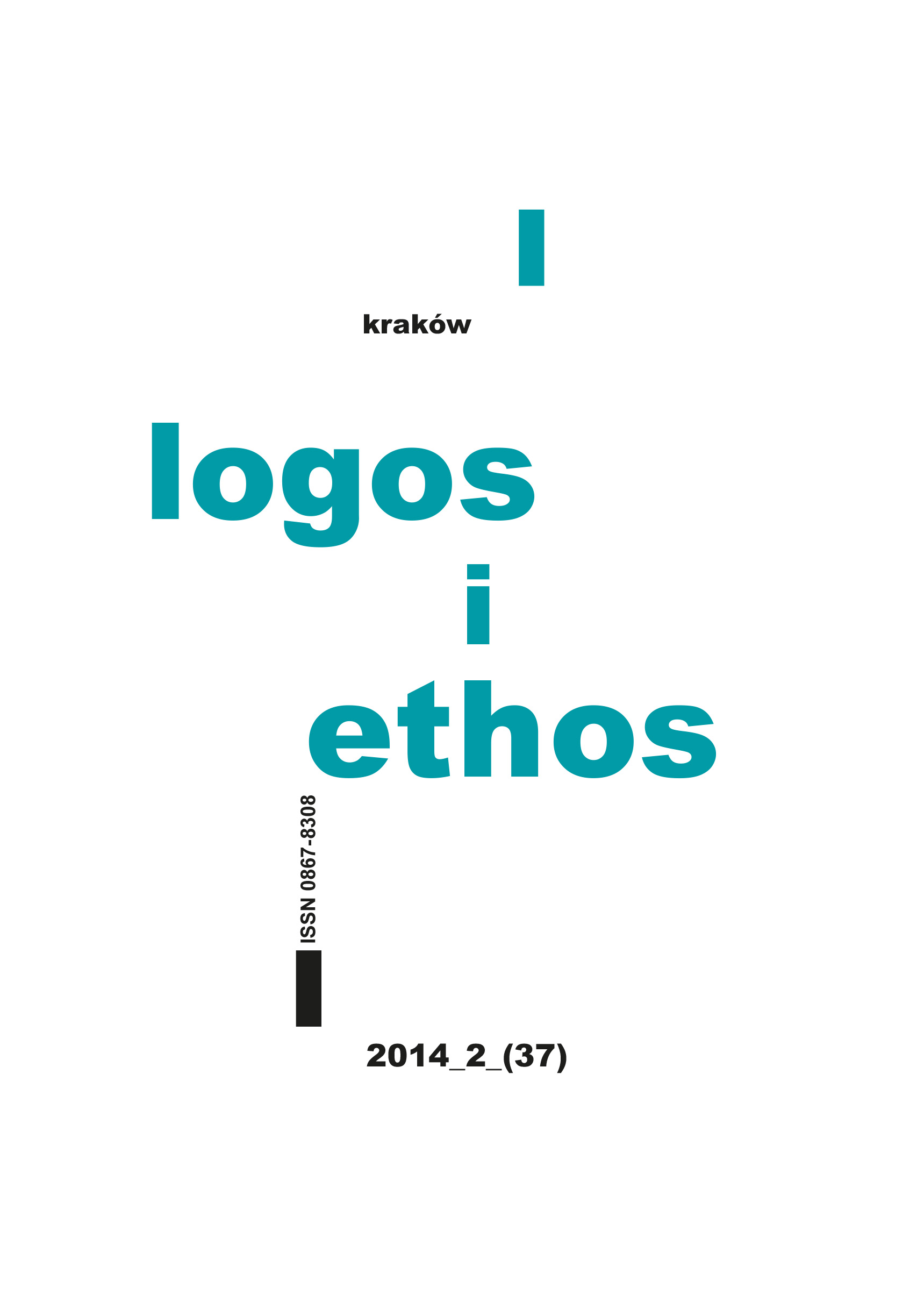Prawo i etyka czynnikami kształtującymi wolność osoby ludzkiej
DOI:
https://doi.org/10.15633/lie.802Słowa kluczowe:
etyka, prawo, wolność, podmiot działania, rozwój osobowyAbstrakt
Wolność oznacza niezdeterminowane działanie człowieka, niezależność od czynników zewnętrznych, od skrępowania i przymusu fizycznego, psychicznego, moralnego, prawnego itp. Nieraz człowiek przypisuje sobie wolność absolutną, bezwzględną, która nie zna jakichkolwiek ograniczeń. Niewątpliwie wolność należy do konstytutywnych elementów każdego człowieka, jest niezbywalną jego własnością. Dzięki aktom wyboru kształtuje on swoją niepowtarzalną osobowość. Wolność jest uprawnieniem i zarazem obowiązkiem dokonywania wyborów, co implikuje odpowiedzialność za podjęte działania i wynikające z nich skutki. Nie każde działanie przynosi pożądane rezultaty, zarówno dla samego podmiotu działania, jak i jego otoczenia. Dlatego w kształtowaniu i korzystaniu z wolności niezbędne są kryteria i wyznaczniki. Wolność, a w ślad za nią podmiot wolności, podlega nieustannemu rozwojowi, wymagają więc odpowiedniej pielęgnacji i troski. Spośród wielu czynników kształtujących wolność osoby ludzkiej wybrano prawo i etykę.Bibliografia
Bauman Z., Etyka ponowoczesna, przeł. z ang. J. Bauman, J. Tokierska-Bakir, Warszawa 1996.
Bauman Z., Wieloznaczność nowoczesna, nowoczesność wieloznaczna, przeł. z ang. J. Bauman, Warszawa 1995.
Benedykt XVI, Serce rozumne. Refleksje na temat podstaw prawa, „Nasz Dziennik” 23 września 2011, s. 11–12. Przemówienie Benedykta XVI wygłoszone w Reichstagu w dniu 22 września 2011 roku.
Derdziuk A., Odrzucenie moralności w imię prawa, [w:] Wartości moralne w kontekście współczesnego sekularyzmu, red. J. Gocko, Lublin 2007, s. 13–26.
Gryżenia K., Etyczne implikacje (nie)osobowego traktowania człowieka, „Forum Pedagogiczne” 2011 nr 2, s. 71–96.
Gryżenia K., Odmienność współczesną normą – wybrane ujęcia filozofii wychowania, [w:] Wobec „odmienności…?”. Pedagogiczne konotacje, red. M. Dycht i L. Marszałek, Warszawa 2008, s. 36–48.
Gryżenia K., Prawo stanowione a moralność w państwie demokratycznym, „Studia Philosophica Wratislaviensia” 2013 vol. VIII fasc. 1, s. 37–50.
Gryżenia K., Zagrożenia podmiotowości człowieka, „Logos i Ethos” 30 (2011) 1, s. 215–233.
Hołub G., Wybór należy do ciebie? – Pomiędzy obiektywnym a subiektywnym rozumieniem dobra, „Cywilizacja” 2004 nr 10, s. 67–75.
Jan Paweł II, Encyklika Veritatis splendor (1993).
Jan Paweł II, Pamięć i tożsamość. Rozmowy na przełomie tysiącleci, Kraków 2005.
Kiereś H., Wolność, [w:] Encyklopedia „białych plam”, red. naczelny A. Winiarczyk, t. 18, Radom 2006, s. 156–159.
Krąpiec M. A., Człowiek i prawo naturalne, Lublin2 1986.
Krąpiec M. A., Człowiek jako osoba, Lublin 2005.
Krąpiec M. A., O człowieku jako osobie, [w:] Osoba i uczucia, red. A. Maryniarczyk, K. Stępień, P. Gondek, Lublin 2010, s. 17–38 (Zadania Współczesnej Metafizyki, 12).
Mondin B., Wolność jako istotny i pierwotny czynnik konstytutywny osoby ludzkiej, przeł. P. Kawalec, „Człowiek w Kulturze. Pismo Poświęcone Filozofii i Kulturze” 1997 nr 9, s. 79–98.
Rorty R., Obiektywność, relatywizm i prawda, tłum. z ang. J. Margański, Warszawa 1999.
Sareło Z., Postmodernizm w pigułce, Poznań 1998.
Skrzydlewski P., Cywilizacyjne zagrożenia życia osobowego na przykładzie zagrożeń ludzkiej wolności, „Człowiek w Kulturze. Pismo Poświęcone Filozofii i Kulturze” 2000 nr 13, s. 219–236.
Wojtyła K., W poszukiwaniu podstaw perfekcjoryzmu w etyce, „Roczniki Filozoficzne” 1957 t. 5 z. 4, s. 303–317.
Pobrania
Opublikowane
Numer
Dział
Licencja
Prawa autorskie (c) 2015 Kazimierz Gryżenia SDB

Utwór dostępny jest na licencji Creative Commons Uznanie autorstwa 4.0 Międzynarodowe.
Autorzy publikujący w czasopiśmie udzielają jego wydawcy zgody o następującej treści:
- Autor zachowuje autorskie prawa majątkowe do utworu, a jednocześnie udziela wydawcy czasopisma zgody na jego pierwszą publikację w wersji drukowanej i wersji online na licencji Creative Commons Uznanie autorstwa 4.0 Międzynarodowe oraz zgody na wykonywanie opracowań, w tym przekładów.
- Autor ma możliwość udzielania zgody niewyłącznej na opublikowanie utworu w wersji, która ukazała się w czasopiśmie (np. zamieszczenia go w repozytorium instytucjonalnym lub opublikowania w książce), wraz z informacją o jego pierwszej publikacji w czasopiśmie.
- Autor może umieścić swój utwór online (np. w repozytorium instytucjonalnym lub na swojej stronie internetowej) jeszcze przed zgłoszeniem utworu do czasopisma.

